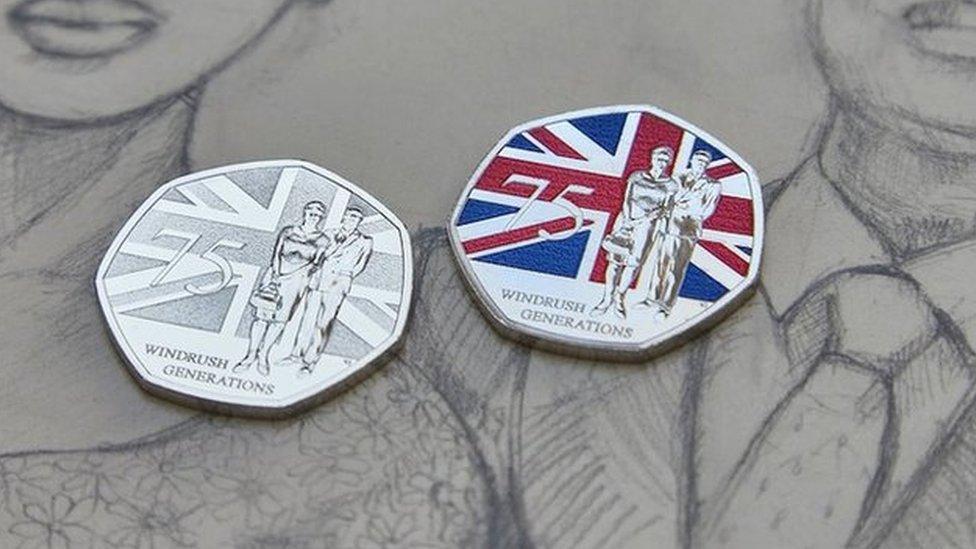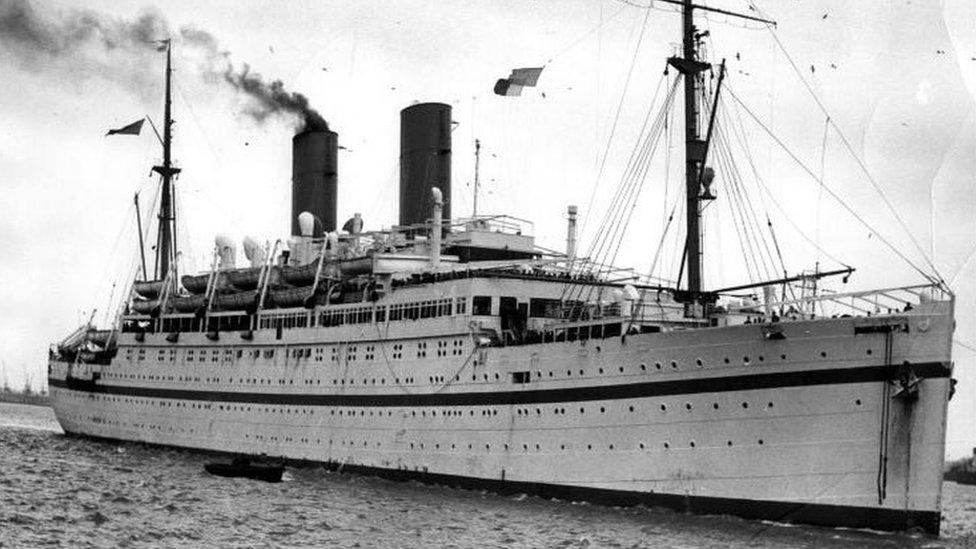Windrush: 'I didn't know what racism was until I came here'
- Published
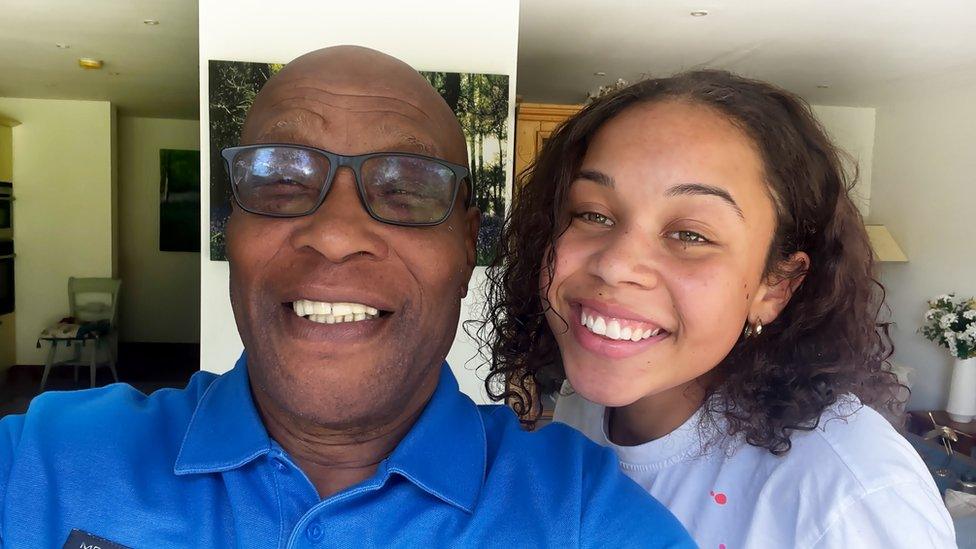
Derrick Burton spoke to granddaughter and BBC Three Counties presenter Lily-May Symonds, who is 21
It is 75 years since the HMT Empire Windrush docked in Tilbury, Essex, on 22 June 1948, a symbol of a generation of migrants who arrived in England from the West Indies. In the 1950s, Derrick Burton's mum and dad were lured by the promise of a better life, leaving behind their three children, including four-year-old Derrick. In his own words, Derrick, now 74, and living near Hemel Hempstead, Hertfordshire, reflects on the discrimination he encountered for the first time when he was eventually reunited with his parents.
My mum and dad left when I was four, and I lived with my aunt for seven years.
I don't remember dad leaving, as far as I was concerned he was going to work - I don't really remember him saying goodbye, nor my mum.
My dad came in '53, and he saved up and sent for my mum, which was the normal thing the West Indians did at that time. She came over a year later.
'Your dad is sending for you'
My parents wanted me to get on so they sent money over to send me to a private school [in Jamaica]. I was with mainly Americans and Chinese, from the forces, and believe it or not I was the only black person in my class.
My parents left the three of us, came over here and started another family. When I came here, there were four new ones.
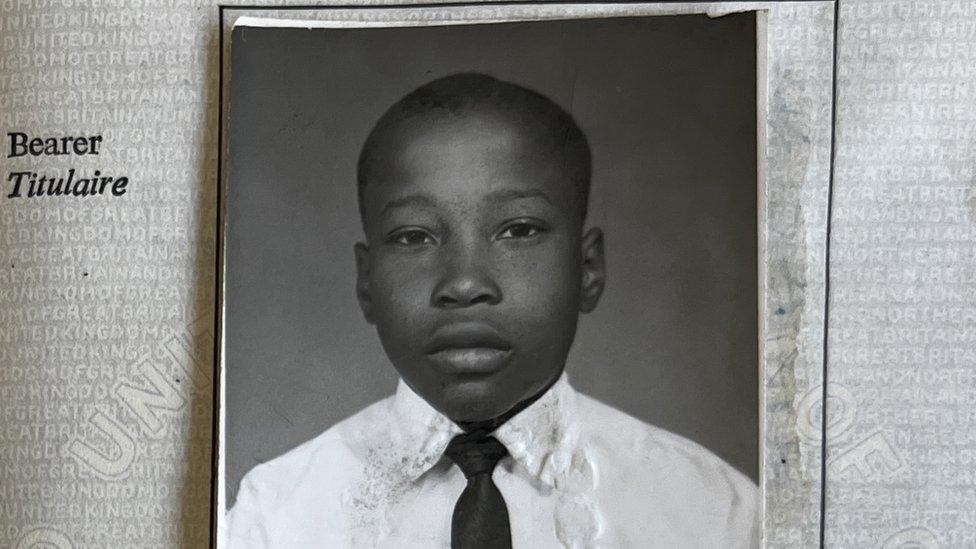
Derrick, pictured here aged 10 or 11, was sent straight to a grammar school in north-west London
There was no conversation [about emigrating], it was what you expected. It was the norm, 'your dad is going to send for you', that's the phrase they used.
All three of us came, with our British Passports, on a plane, in 1961.
I landed at Heathrow, in the middle of the night. You look down, it's dark, there's all these lights and you think 'oh that's lovely', and you get down and it's freezing.
I remember driving down the road and my dad opened the car door and he said 'this is your house'.
I thought we owned all the street and I expected to go into the door, and it goes left and right. It was a terraced house. But it was just two walls, and the stairs and the seven of us in Talbot Road in Willesden [north-west London].
'Worst experience of my life'
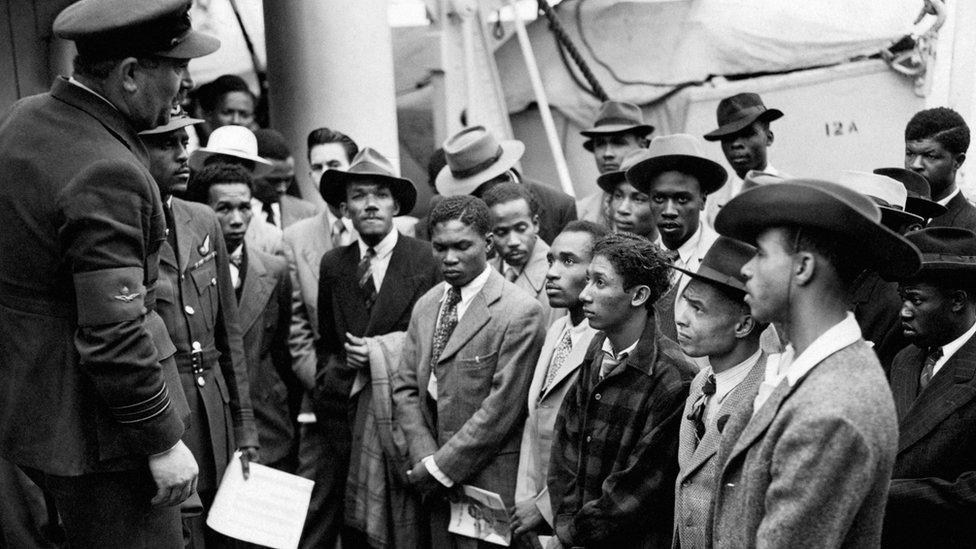
Derrick's parents came to England separately by ship, five and six years after Jamaican migrants [pictured] arrived on HMT Empire Windrush
All I'd got an idea of [about London] was the red double-decker buses, as dad had sent me one, as a present for Christmas. That's all I wanted to see.
I went straight to grammar school. It turned out to be one of the worst experiences of my life. It was terrible. Discrimination, straight away. From the teachers and the kids. The kids were the worst, I had to leave. I was only there for nine months.
I would hear the parents say to the kids 'don't not sit next to him in class'. Remember those old desks where you could lift up the lid? They used to... I can't even go through it now, but it was bad. The teacher would not understand why I was cross. I used to get sent to the headmaster. He didn't do much. You're here, so put up with it.
It made me a stronger person but it made me a hard person. It'd been drummed into me 'don't cry, don't cry'. But I would get angry.
I pleaded and begged and got moved to a secondary modern school and it was the best thing that had happened to me. It was brilliant. I was still a minority but I made terrific friends. All were white, I never had a problem. We had groups and we would all hang around, and it went through school, when I went to college, no problem.
'Bundled in a meat van'
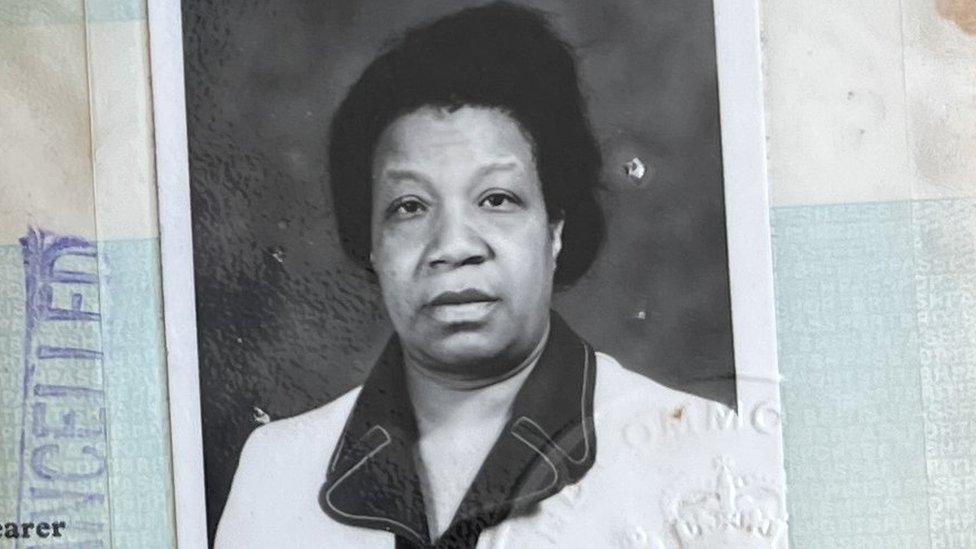
Derrick's mother, Lena, arrived in England as a dressmaker and retrained as a nurse, but wanted to return to Jamaica
You'd stick with white kids, if they'd have you, because it was protection. If you were a group of black kids the police would pull you up, no matter what.
I remember getting arrested and being put in the cell for the night for something; I wasn't even in the area, Something had happened between some black kids and white kids, the normal fight. I was going out of Watford High Street station, walking up the road, and all of a sudden I got bundled in a meat wagon [police van], as they called them then, and put in a cell. I must have been 18.
I didn't know what racism was until I came here. I was brought up in a white school in Jamaica, and I never had a problem.
I was going to school once on the famous double-decker bus and I looked out of the window and there's my dad being dragged over the bonnet over a police car, given a beating.
This is at eight o'clock in the morning. I was 11 or 12. It was terrible times.
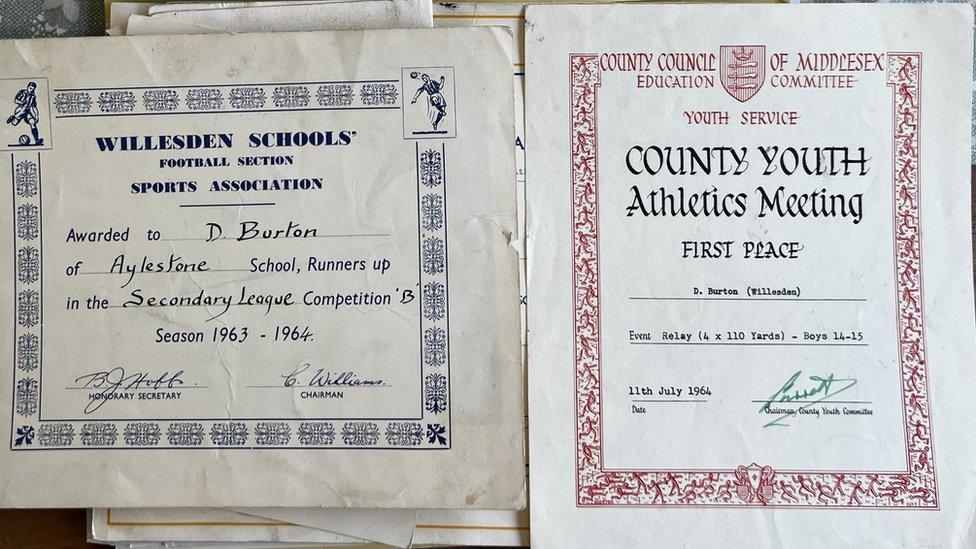
Derrick excelled in sports as a teenager
I started doing lots of sports, I was doing a lot of athletics, I represented Brent, I represented Middlesex. When I went training, my dad said 'be home at 10'. If I was in at 5 past 10, I got a hiding. He'd obviously been pacing, up and down, thinking somethings happened to me. That's why he was strict.
My mum and dad were like ships passing in the night. Dad worked as a carpenter, building the sets at Pinewood Studios, Elstree and Borehamwood. He would come in, and she would be going out the door, to do her shift, as a nurse.
They would work if it paid a penny, as long as they were working. They were that type.
'Emotionally dead'
I think the [Windrush Generation], it was for good. I don't know what would have become of me, in Jamaica. It gave us a better standard of living.
What it has done to me is made me a stronger person, but emotionally dead. You had to switch off anything that affected you emotionally, and affection - out of the window.
It was the complete norm - to have your parents leave you like that. It's only later in life you realise it had affected you.
The racism was a shock. My dad had to sit me down to say 'you can't do this, because you're black, you can't do this...'.
That was in all in my head, all my life. In the end I rebelled against it.
It wasn't a case of living, it was a case of surviving and a lot of people buckled under.
As told to Derrick's granddaughter, BBC Three Counties Radio presenter Lily-May Symonds. Derrick is now retired and has two children and five grandchildren

Follow East of England news on Facebook, external, Instagram, external and Twitter, external. Got a story? Email eastofenglandnews@bbc.co.uk, external or WhatsApp us on 0800 169 1830
Related topics
- Published19 June 2023
